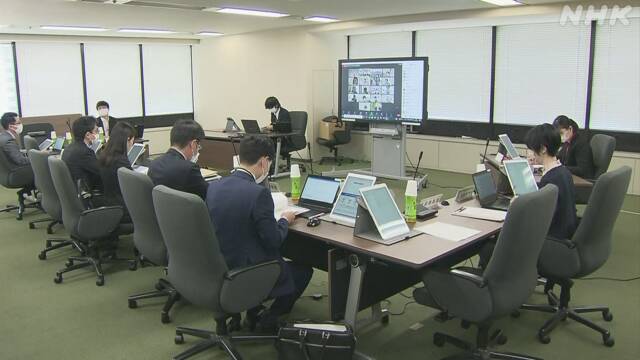Discussions began on the 24th at a subcommittee of the Ministry of Health, Labor and Welfare regarding the fourth inoculation of the new coronavirus vaccine, and it was agreed to start preparations for the fourth inoculation, but the purpose and effects of the inoculation will be carefully considered. There were a lot of opinions that it should be done.
The Ministry of Health, Labor and Welfare will continue to discuss whether to actually do the fourth time.
According to the Ministry of Health, Labor and Welfare, it has been reported that after the third vaccination in Europe and the United States, the effect of preventing the onset and infection gradually decreases, and in the United Kingdom, France, Germany and Israel, there is a risk of elderly people, health workers, and aggravation. The fourth inoculation is given to people.
On the 24th, the Ministry of Health, Labor and Welfare held a subcommittee made up of experts, assuming that the infection of the Omicron strain will not converge and may spread again, assuming that the fourth inoculation will be given to all applicants. He said he would soon ask local governments nationwide to start preparing for delivery of vaccination tickets and securing staff.
Pfizer and Moderna vaccines will be used, and the inoculation interval is basically 6 months, but it will be examined based on overseas trends.
While the subcommittee agreed to start preparations, he said, "We should evaluate the effects and costs up to the third time and discuss whether the fourth time is really necessary for everyone." Shouldn't we focus on older people and key workers? "
In addition, "We must consider whether to position the 4th vaccination as a public vaccination" or "There are countries that do not recommend it overseas, and there are few data, so we should fully discuss its effectiveness and safety. There were also a series of cautious opinions such as "It is better to have the option of quitting while preparing."
The Ministry of Health, Labor and Welfare will continue to discuss whether or not to actually carry out the fourth time, based on the latest data on efficacy and safety.

